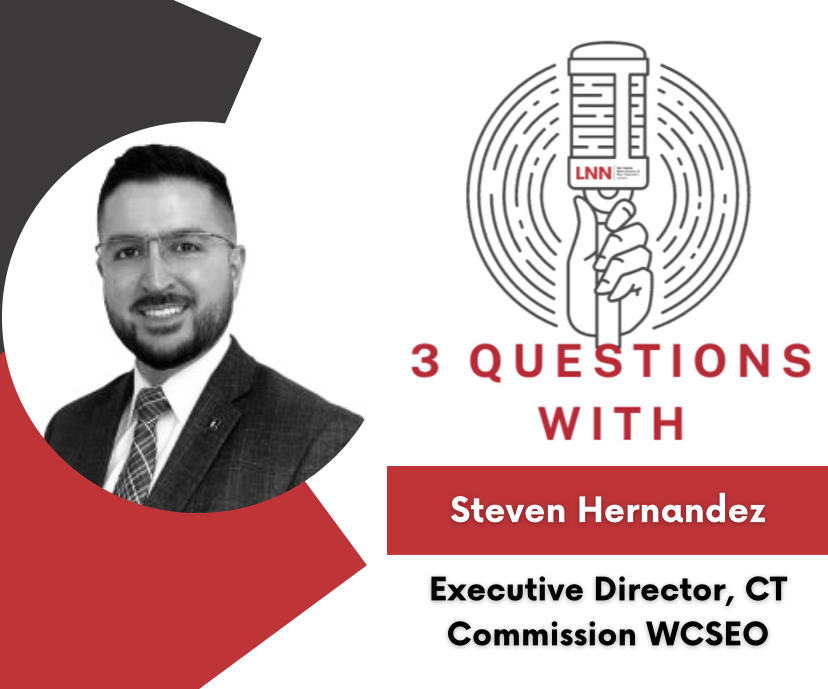“Civics is a hallmark of the work that we do here at the (CWECSEO) commission,” said Steven Hernandez, an attorney who serves as the executive director of the Commission on Women, children, seniors, equity and opportunity (CWCSEO) at the Connecticut General Assembly.
As a guest on the Latino News Network podcast, “3 Questions With…” Hernandez speaks of the importance of promoting civic engagement in the state of Connecticut.
The CWCSEO researches best practices, coordinates stakeholders, and promotes public policies that are in the interests of Connecticut’s underserved and underrepresented families, women, children, and older adults. “When you think of a government agency, you may think, you know, how is it that this agency represents the people of the state, either in government or among state actors, but this agency is a little different. There’s a people-facing component to what we do”, said Hernandez.
One of the initiatives is the Parent Leadership Training Insitute, otherwise known as the PLTI. The PLTI is a program in which families are trained over the course of almost twenty-five weeks on how to be engaged in democracy and become more active in their community while also developing skills needed for civic leadership.
A factor within the PLTI is called the Children’s Leadership Training Institute, an element that Hernandez is passionate about. “What we teach is that children are leaders today. They’re not just leaders of tomorrow; they are engaged in their own civic spaces: their school, their families, their communities.” Hernandez stresses the importance of civic engagement in all its forms, from creating accessible places for young people to learning to run for office.
Steven Hernandez also shared the importance of family and community. Hernandez comes from a family of immigrants, his great grandparents on his father’s matrilineal side having immigrated to Chicago from Italy, later moving to Veracruz until the Mexican revolution, where they then settled in Tampico and Monterrey, where they reside to this day. His mother’s side—as well as his father’s patrilineal side— is Mexican, dating back multiple generations. As proud as Hernandez is of his ancestry, he’s proud to call Connecticut home too. “This country belongs to each and every one of you as much as it does to anyone else,” says Hernandez. “Even though it doesn’t seem like it sometimes from what we may hear in the media and what we may hear otherwise, at least in our little version of democracy that is Connecticut, this is your home, too. And you have the right to engage all of the resources so that you can improve your own life and the lives of your family.”
